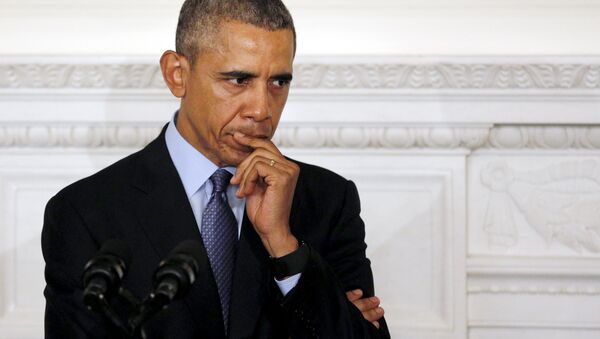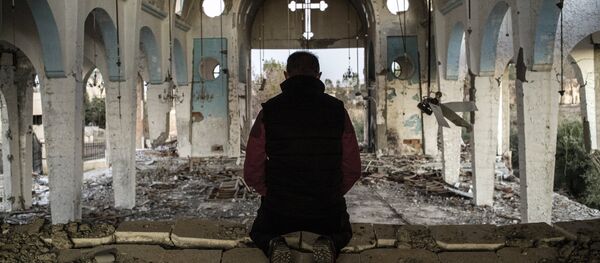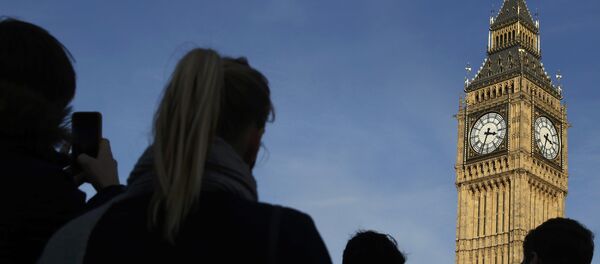During December 2015, the US Congress tasked the State Department to determine whether Daesh actions can be classified as "genocide," an unusually rare and strong accusation which the US has historically sought to avoid.
In March 2016, Kerry officially announced that Daesh is guilty of genocide.
"My purpose in appearing before you today is to assert that in my judgment Daesh is responsible for genocide against groups in areas under its control including Yazidis, Christians, and Shiah Muslims. Daesh is genocidal by self-proclamation, by ideology, and by actions," he said, adding that the violent religious extremist organization is also responsible for crimes against humanity and ethnic cleansing against the aforementioned groups, and in some instances "against Sunni Muslims, Kurds, and other minorities."
After declaring Daech to be genocidal, it remains now for the US and the West to act. There are several issues that the US and its allies must address before any prosecution can be brought to bear on Daesh, the first being the defeat of the enemy on the ground. Some contend that defeating Daesh will likely cause so many deaths that there may not be anyone left to prosecute. Collecting evidence in a war zone is challenging, and most evidence is beyond reach or is destroyed before it can be properly documented.
It is also uncertain who is responsible for the war crimes, as Daesh is often viewed as a paramilitary organization, with fighters taking orders from superiors, and just as often accused of being a large group of ignorant religious fundamentalists committing random acts of violence.
If Daesh extremists are convicted for war crimes, where would such a large group be imprisoned? A mundane problem, certainly, but a significant challenge nonetheless, and one not addressed by the US accusations.
How will any prosecution and subsequent guilty verdict be enforced? There are concerns that if the US acts alone, as judge and executioner, it would "create fodder for ISIS propaganda," as pointed out by Steve Oshana, an Assyrian Christian activist who has dealt with administration officials on how to hold Daesh accountable.
"It would have to be an international deal," he asserted.
Using the International Criminal Court would be exceedingly slow. Setting up a separate international body with allied states would cause lengthy negotiations, likely involving a deal with Syria's Bashar Assad and Russia, sides in the conflict the US has historically sought to ostracize.
Yet there is an additional and unexpected problem to address. Genocide, by its nature, is a crime that can be, and until now has been, committed by governments of states. Daesh, despite calling itself an "Islamic State" is a terrorist group which has no internationally-acknowledged boundaries.
Acknowledging genocide automatically elevates the status of Daesh to that of a nation-state. With the United States unable to enforce prosecution, John Kerry's statement could be perceived by Daesh as something of a compliment.




